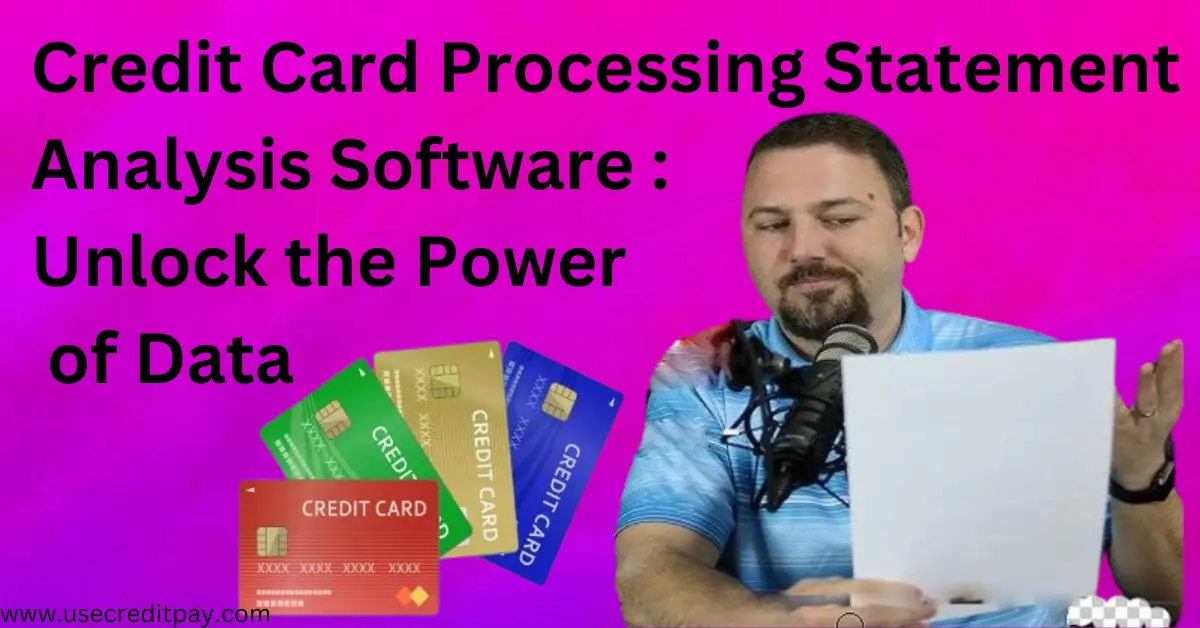A Courtesy Adjustment in credit card terms is a credit issued by the card provider, often to resolve a dispute or correct an error. This adjustment typically appears as a transaction on the cardholder’s statement, crediting their account with a specific amount.
Managing credit card transactions can occasionally lead to discrepancies and errors. To maintain customer satisfaction and correct such issues, credit card companies offer Courtesy Adjustments. These are unique transactions where the card issuer credits the cardholder’s account to mend overcharges, billing mistakes, or other disputes.
It is a gesture of goodwill and an acknowledgment of a customer’s valuable relationship with the company. Issuers aim to ensure accuracy and trust in their billing process, and Courtesy Adjustments play a pivotal role in this. Engaging in this practice helps maintain transparency and keeps both existing and potential customers confident in the service provided. This customer-oriented approach can lead to improved loyalty and positive word-of-mouth, which are crucial for the company’s reputation.
The Essence Of Courtesy Adjustments
Courtesy adjustments on credit cards are small acts of goodwill from lenders. They can bring joy and relief to cardholders. These gestures can turn a bad day into a good one. Banks often use them to maintain a positive relationship. They are not mandatory. But they show that lenders value their customers. Let’s explore what can prompt such a kindness and how it benefits cardholders.
What Sparks A Courtesy Adjustment?
- Bank Errors: Sometimes, banks make mistakes. When they do, a courtesy adjustment corrects it.
- Late Fee Waivers: Missed a payment deadline? Banks might waive the fee to keep you happy.
- Disputed Charges: If you question a charge, the bank might offer an adjustment while they look into it.
- Customer Retention: Loyal customers might get an adjustment if they think about leaving.
- Goodwill Gestures: Occasionally, banks issue these adjustments just to show they care.
The Inner Workings Of Cardholder Favor
Banks prioritize customer happiness. It strengthens trust. Are you curious how they make things right? Let’s dive in.
| Action | Description |
|---|---|
| Review | The bank looks at your account and the issue at hand. |
| Decision | They decide if a courtesy adjustment is the best step. |
| Processing | The adjustment gets added to your account. |
| Confirmation | You get a message saying things are all set. |
Remember, these adjustments don’t happen all the time. But they can build a strong bond between you and your bank. Banks hope these positive actions encourage you to stay loyal.
Spotlight On Credit Card Courtesy Adjustments
Spotlight on Credit Card Courtesy Adjustments: Navigating the intricacies of credit card statements can be akin to deciphering a puzzle. But among the fees, charges, and payments, there’s a beacon of benevolence known as the courtesy adjustment. It’s the card issuer’s way of saying, “We’ve got your back.” Let’s delve into these gracious transactions and their role in our billing statements.
A Tour Of Credit Transactions
Every swipe, dip, or tap of a credit card generates a transaction. Each transaction is a story—purchases, fees, refunds, or rewards. Understanding these tales is essential for smart card usage. Below is a guided tour through the typical entries found on a credit statement:
- Purchase Transactions: Items or services you buy.
- Interest Charges: Costs for borrowing credit.
- Fees: Various charges, like late or over-limit fees.
- Payments: Amounts you pay back to the issuer.
- Rewards: Points or cashback earned from purchases.
- Refunds: Returns or cancellations credited back.
- Courtesy Adjustments: Issuer-initiated credits, often as goodwill gestures.
The Role Of Courtesy Adjustments In Billing
Courtesy adjustments can be surprising rays of sunshine on a credit card statement. These issuer-granted favors usually occur under specific circumstances:
| Scenario | Adjustment Reason |
|---|---|
| Bank Error | A mistaken fee or charge is reversed. |
| Dispute Resolution | A contentious charge is settled in the customer’s favor. |
| Customer Service | A gesture for subpar service or inconvenience experienced. |
| Loyalty Recognition | A reward for long-term customers or frequent usage. |
Courtesy adjustments serve as an emblem of customer care. Card issuers use them to fix errors, acknowledge loyalty, or simply put a smile on your face. It’s evidence that sometimes the financial world isn’t just about numbers—it’s about people too.
Decoding The Courtesy Adjustment
Ever noticed a credit on your credit card statement labeled ‘courtesy adjustment’? Many cardholders find these entries puzzling. Let’s dive into what they really mean and why they appear on your statement.
From Dispute To Resolution
A courtesy adjustment often links back to a disputed transaction. Say you notice a charge you did not authorize, or an error appears on your bill. You raise an issue with your credit card provider. They investigate. Sometimes, while they do, they issue a temporary credit to your account. This is a courtesy adjustment. It’s the card issuer’s way of saying, “We’ve got this, while we solve the issue.”
- Filing a dispute with your credit card company.
- Temporary credit issued as a courtesy adjustment.
- Adjustment may become permanent after investigation completes.
The Anatomy Of A Courtesy Credit
What actually makes up a courtesy credit? Think of it as your card issuer’s olive branch—an interim fix.
| Component | Description |
|---|---|
| Amount | The sum credited to your account, matching the disputed charge. |
| Type | Labeled as ‘courtesy’ to signify it’s temporary and subject to change. |
| Status | Shows as a credit, reducing your balance temporarily. |
Remember, a courtesy credit is provisional. It might get reversed if the issuer finds the original charge valid.
- Courtesy credit issued.
- Investigation by the card issuer ensues.
- Credit becomes permanent or reversed based on findings.
Why Banks Offer Courtesy Adjustments
Understanding ‘Why Banks Offer Courtesy Adjustments’ is important for any credit card user. Courtesy adjustments are gestures of goodwill from banks. These adjustments address billing disputes, bank errors, or customer dissatisfaction. Let’s delve into the reasons behind these customer-focused decisions by banks.
Preserving Customer Relationships
Banks value their customers. A key method to keep customers happy is through courtesy adjustments. Adjustments serve as apologies for errors or inconveniences. Happy customers stay loyal. They also share good experiences with others. Here are some reasons why preserving customer relationships is crucial:
- Long-term business success hinges on satisfied customers.
- Positive word-of-mouth generates new customer leads.
- Reducing churn rate is less costly than acquiring new customers.
Assessing The Financial Impact
Banks often weigh the cost of courtesy adjustments against potential long-term gains. A small credit to a customer’s account may avoid larger losses later. Here’s how banks assess the impacts:
| Factor | Impact |
|---|---|
| Customer Retention | More retained customers contribute to ongoing revenue streams. |
| Brand Image | A strong reputation attracts more business and reduces marketing costs. |
| Negative Feedback Avoidance | Resolving issues proactively prevents negative reviews and customer loss. |
Eligibility Criteria For Courtesy Adjustments
An unexpected charge on your credit card bill can be alarming. Credit card companies might offer a solution: courtesy adjustments. These goodwill gestures can help resolve disputes or correct billing errors. Keep on reading to learn who qualifies for courtesy adjustments.
Qualifying Transactions
The first step in getting a courtesy adjustment is identifying if the transaction qualifies. Here’s what usually makes the cut:
- Accidental double charges from a merchant.
- Small discrepancies in the billed amount versus the actual charge.
- Bank errors, such as incorrect fees or interest charges.
Documentation of the transaction, such as a receipt or a statement, can help boost your chances of approval.
Laying Down The Courtesy Parameters
Card companies have specific criteria for courtesy adjustments.
Here’s a general guide:
- Good standing accounts often see more flexibility.
- Regular customers may get faster service.
- Size of the adjustment matters; small amounts are easier.
Credit card companies might set their own thresholds for eligibility. Check their terms for details.
The Impact On Your Credit Score
When you receive a courtesy adjustment on your credit card, it’s crucial to understand its effect on your credit score. These adjustments can influence your financial standing. Below we’ll explore the immediate effects and how they can shape your credit health over time.
Short-term Adjustments
Courtesy adjustments often result from a billing dispute or a goodwill gesture by the credit card issuer. These seemingly small actions can lead to short-term impacts on credit utilization, reported balances, and ultimately, your credit score.
- If a courtesy adjustment reduces your balance, your utilization ratio might drop.
- This could lead to a temporary credit score increase.
- It’s essential to keep an eye on statements to ensure adjustments are accurately reported.
Long-term Credit Health
Good financial habits set the groundwork for long-term credit health. Courtesy adjustments are a single piece of this puzzle. They do not directly affect your credit history length, payment history, or new credit. Yet, responsible use of this leeway can lead to better financial practices.
- Maintain low balances.
- Make payments on time.
- Avoid opening too many accounts at once.
Demystifying Credit Score Myths
Many believe that courtesy adjustments can fix their credit score instantly. This is a myth. While constructive, these adjustments are part of a broader strategy to maintain healthy credit. It’s important not to view them as quick fixes but as opportunities to continue building a stronger credit foundation. Remember:
| Myth | Reality |
|---|---|
| Courtesy adjustments improve credit scores immediately. | They may aid credit utilization in the short term. |
| Adjustments can remove negative history. | Only time and good habits can heal past credit wounds. |
How To Request A Courtesy Adjustment
Experiencing a hiccup with your credit card? Courtesy adjustments can help. Sometimes banks offer to fix small issues as a gesture of goodwill. Want to ask for this helpful tweak on your account? Read on to learn the ropes on how to make that request successfully.
Navigating Customer Service
Finding the right person to talk to is key. Start by gathering your credit card information. Next, find the customer service number on the back of your card. Be prepared to explain your situation clearly and concisely.
- Call during working hours for better chances of reaching someone.
- Take note of the representative’s name and call details for future reference.
- If a solution isn’t reached, politely ask for a supervisor.
Effective Communication For Favorable Outcomes
Speak with confidence and politeness. Your words can influence the outcome. Clearly state why you deserve this adjustment. Mention any past issues and your loyalty to the bank. Don’t forget to thank the representative for their help.
- Be clear and precise about what you’re asking for.
- Highlight your positive history with the bank, if applicable.
- End the call by recapping any steps or promises made.
Case Studies: Courtesy Adjustments In Action
In the realm of credit card management, courtesy adjustments stand as a beacon of relief for cardholders. These adjustments, kindly made by the credit card company, typically correct billing errors or remove unwanted charges. They act as a testament to customer service excellence. This section of the blog delves into real-life instances where such courtesy adjustments have played a pivotal role. Through these narratives, cardholders gain insights into the workings of this beneficial feature.
Triumphs And Cautionary Tales
Triumphs: Consumers have often seen their credit scores salvaged thanks to timely courtesy adjustments. Below are a few standouts:- Airline Error Adjustments: A double charge for a flight ticket promptly rectified, saving the customer undue stress and financial strain.
- Banking on Goodwill: Waived late fees for first-time offenders, resulting in sustained customer loyalty and appreciation.
- Disputed Charges Resolved: Quick action on unauthorized transactions helps maintain account security and customer peace of mind.
- Assumption of Eligibility: Expecting an adjustment for a charge outside the grace period leads to refusal, reinforcing the need to read the fine print.
- Miscommunications: Misinterpretation over the phone about the adjustment can cause unexpected charges on the next statement.
Analyzing Real-world Scenarios
Study 1: Unexpected Charges Waived – John noticed a subscription renewal he forgot to cancel. He contacted customer service. The company acknowledged his loyalty and promptly removed the charge, boosting his trust in their service.
Study 2: Learning the Limits – Sarah faced a late fee due to a processing delay. She expected leniency as a long-time customer but learned the hard way that multiple past late payments restricted such courtesy.
Observations: These scenarios highlight two key outcomes in the world of courtesy adjustments. On one hand, they showcase card companies’ willingness to support their customers. On the other, they underline the importance of understanding policies and past account behavior. Such knowledge is vital for making the most of the credit card experience, teaching cardholders to navigate these adjustments skillfully.
Beyond Courtesy: Policies And Regulations
Courtesy adjustments on credit cards often come as pleasant surprises. These gestures, beyond being kind acts, involve complex policies and regulations. Grasping these allows cardholders to navigate credit systems confidently.
Understanding The Legal Framework
The legal umbrella governing credit practices ensures fairness and transparency. It comprises various acts and regulatory mandates. These guidelines protect consumers from unfair billing practices.
- Credit Card Accountability Responsibility and Disclosure Act safeguards by setting strict rules.
- Guidelines like Fair Credit Billing Act assist in resolving errors efficiently.
Future Of Courtesies In Credit
As the digital landscape evolves, so do customers’ expectations. The future sees credit courtesy deeply tied with advanced customer service and innovative finance management tools.
Technology plays a role in automating courtesy gestures. It upholds customer loyalty and enhances user experience.
Predictive analytics will help in foreseeing and preventing disputes. This offers proactive solutions and consistent credit card experiences.
Frequently Asked Questions For What Is Courtesy Adjustment In Credit Card
What Is A Courtesy Adjustment On A Credit Card?
A courtesy adjustment is a credit issued by a credit card company to rectify a billing error or as a gesture of goodwill. It refers to the transaction on your statement that reduces your balance but isn’t a typical refund or payment.
How Does A Courtesy Credit Affect My Balance?
A courtesy credit directly reduces your outstanding credit card balance. It’s similar to a payment made towards your account but initiated by the credit card issuer rather than yourself.
Why Do Companies Issue Courtesy Adjustments?
Companies issue courtesy adjustments to resolve disputes, correct billing inaccuracies, or provide customer satisfaction. They are a way to maintain good customer relations and address any unintentional charges or issues.
Can I Request A Courtesy Adjustment?
You can request a courtesy adjustment by contacting your credit card issuer if you have a valid reason, such as a discrepancy in your bill or a charge for a service not received.
Understanding courtesy adjustments is a valuable aspect of managing your credit card account. These gestures by credit issuers can ease financial strain and reflect good customer service. Remember, maintaining open communication with your provider is crucial. Stay informed and don’t hesitate to ask for a courtesy adjustment if necessary—it could save you from unexpected charges and foster a positive banking relationship.





